The Average Lifespan of an HVAC System: What You Need to Know
When it comes to maintaining a comfortable indoor environment, your HVAC (Heating, Ventilation, and Air Conditioning) system plays a crucial role. One of the most common questions homeowners ask is about the average lifespan of an HVAC system. Understanding how long your HVAC system should last can help you plan for maintenance, repairs, or even a replacement.
On average, you can expect your HVAC system to last anywhere from 15 to 25 years, depending on several factors such as the type of system you have, how often it’s used, maintenance practices, and the environment in which it operates. Here’s a closer look at how these elements can affect the lifespan of your system.
Factors Influencing HVAC Lifespan
Several aspects can influence how long your HVAC system will last:
- Type of System: Different types of HVAC systems have varying lifespans. Central air conditioning units typically last around 12-15 years, while furnaces can last up to 20 years or more.
- Usage Patterns: How often you use your HVAC system matters. Frequent use during extreme weather conditions can put additional stress on your unit, potentially leading to a shorter lifespan.
- Maintenance Routines: Regular maintenance is essential. Systems that are well-maintained through routine checks and timely repairs generally have a longer lifespan.
- Installation Quality: A poorly installed system may experience issues much earlier than one that is installed correctly. This is crucial for both performance and longevity.
- Environmental Factors: The climate in your area can also play a role. For example, systems running constantly in hot and humid environments may wear out faster.
Average Lifespan of Different HVAC Components
To further understand the average lifespan, it’s helpful to break down the different components of your HVAC system:
| Component | Average Lifespan |
|---|---|
| Air Conditioner | 12-15 years |
| Furnace | 15-20 years |
| Heat Pump | 10-15 years |
| Boiler | 15-30 years |
When you know how long each component lasts, you can better manage maintenance and replacement schedules to ensure optimal performance from your HVAC system.
Signs Your HVAC System Needs Attention
Being proactive about issues can help you extend the lifespan of your HVAC system. Here are some warning signs that might indicate it’s time to call a professional:
- Inconsistent Temperature: If some rooms are hotter or colder than others, your system may not be functioning efficiently.
- Increased Energy Bills: A sudden spike in electricity or gas bills could suggest that your HVAC system is struggling.
- Strange Noises: Sounds like banging, clanking, or high-pitched squeals may indicate mechanical problems.
- The Age of the System: If your system is nearing the end of its expected lifespan, it’s worth evaluating for possible replacement.
Best Practices for Extending Your HVAC Lifespan
To ensure your HVAC system lasts as long as possible, consider these best practices:
- Schedule regular maintenance checks at least once a year.
- Change air filters every 1-3 months, depending on usage.
- Keep outdoor units clear of debris and obstructions.
- Monitor and address any unusual noises or performance issues promptly.
- Consider upgrading to more energy-efficient systems if your current one is old.
Investing time and effort into proper maintenance pays off in the long run—a well-maintained HVAC system not only lasts longer but also operates more efficiently, providing comfort at a lower cost.
For more information on HVAC systems and maintenance practices, you can visit Energy.gov or AHRI.
By understanding the average lifespan of your HVAC system and recognizing the signs of wear and tear, you can ensure a comfortable home environment for years to come.
Key Factors Influencing HVAC Lifespan
Having a reliable HVAC system is crucial for your comfort at home or in the office. If you’re curious about how long these systems typically last, it’s important to understand the key factors that influence their lifespan. By focusing on these elements, you can not only extend the life of your HVAC system but also improve its efficiency. Here are various factors that play a significant role in determining how long your HVAC system may last.
Maintenance Practices
Regular maintenance is essential for maximizing the lifespan of your HVAC system. Here’s how it impacts longevity:
- Scheduled Inspections: Having a professional inspect and maintain your system twice a year can help catch minor issues before they turn into major problems.
- Filter Changes: Regularly replacing or cleaning filters ensures that airflow remains unobstructed, which can significantly reduce wear and tear.
- Coil Cleaning: Dirty coils can decrease system efficiency, leading to increased energy costs and less effective cooling or heating.
Quality of Installation
The initial installation quality can greatly affect the longevity of your HVAC system. Here are some aspects to consider:
- Choosing the Right Size: An HVAC system that is too large or too small for your space will undergo more stress, reducing its lifespan.
- Professional Installation: A qualified technician ensures that all components are set up correctly, mitigating the risk of future issues.
Environmental Factors
The environment where the system operates can influence its lifespan significantly. Key points include:
- Climate: Systems in areas with extreme temperatures may wear out faster due to increased usage.
- Air Quality: Poor indoor air quality can lead to more frequent filter changes and cause internal components to deteriorate.
Usage Patterns
How often and how intensely you use your HVAC system also impacts its longevity. Consider the following:
- Heating and Cooling Demand: Higher usage will naturally lead to faster wear on system components.
- Temperature Settings: Keeping settings at extremes can strain the system and lead to faster deterioration.
System Type
Different types of HVAC systems have varying lifespans, which can influence your decision on what to install. Below is a general comparison:
| System Type | Average Lifespan |
|---|---|
| Central Air Conditioners | 15-20 years |
| Furnaces | 15-30 years |
| Heat Pumps | 10-20 years |
| Mini-Split Systems | 10-30 years |
Energy Efficiency
Energy-efficient models may have a longer lifespan due to their optimized design. Consider these points:
- Modern Technology: New systems incorporate technology that helps reduce energy consumption, resulting in less wear and tear.
- Incentives for Upgrades: Many utility companies offer incentives for upgrading to energy-efficient models, potentially reducing operational costs over time.
Understanding these factors can guide you in maintaining your HVAC system, ensuring that it serves you well for years to come. Regular maintenance, professional installation, and smart usage patterns all contribute to a longer lifespan. For more information about HVAC systems and maintenance tips, visit Energy.gov or check out HVAC.com.
Signs That Your HVAC System May Need Replacement
Your HVAC system plays a crucial role in maintaining comfort in your home. However, there may come a time when you need to consider a replacement. Here are some clear signs that your HVAC system may need to be replaced.
Age of the System
Every HVAC system has a lifespan. On average, your heating and cooling unit can last about 15 to 20 years. If your system is approaching or has exceeded this age, it may be time to consider a replacement. Older units are less energy-efficient and can lead to higher energy bills.
Increased Energy Bills
If you notice a significant spike in your energy bills without a change in usage patterns, this could be a red flag. An aging HVAC system often struggles to maintain efficiency. Newer systems are designed to operate with less energy consumption, saving you money in the long run.
Frequent Repairs
Are you calling a technician more than once a year? Frequent repairs can indicate that your HVAC system is nearing the end of its life. Instead of spending money on repeated repairs, investing in a new system could be more cost-effective.
Inconsistent Temperatures
Do some rooms feel too warm while others remain chilly? Inconsistent temperatures throughout your home could signify that your HVAC system can no longer efficiently distribute air. You might need a new system to ensure even cooling and heating.
Strange Noises
Listen closely. If your HVAC system starts making unusual sounds like banging, clunking, or grinding, it can mean internal issues. While some noises may be fixable, persistent strange sounds could warrant a complete replacement.
Humidity Issues
Your HVAC system should help regulate humidity levels. If you find that your home feels too humid or too dry, your system might be failing to do its job. Consider it as a sign that a replacement may be necessary to enhance air quality.
Rising Freon Costs
If your unit uses Freon (R-22) refrigerant, you might notice increasing costs. The government has phased out R-22 due to environmental concerns, and it is becoming rare and expensive. If you find yourself refilling this refrigerant often, it might be time to switch to a newer system that uses a more environmentally friendly refrigerant.
Unexpected Breakdowns
Unanticipated breakdowns can leave you uncomfortable, especially during extreme weather. If your HVAC system frequently shuts down or malfunctions, it’s a strong indicator that replacement is on the horizon.
To help you assess your system’s status, here is a simple table illustrating the typical lifespan of different HVAC types:
| HVAC System Type | Average Lifespan |
|---|---|
| Central Air Conditioner | 15-20 years |
| Heat Pumps | 10-15 years |
| Furnaces | 15-30 years |
Monitoring the signs that indicate your HVAC system may need replacement can help you avoid unexpected discomfort and higher repair costs. If you relate to any of these signs, consider reaching out to a reputable HVAC professional for a comprehensive evaluation.
For more information on HVAC systems and maintenance, check out Energy.gov and Consumer Reports.
Maintenance Tips to Extend Your HVAC System’s Life
Your HVAC system is a significant investment in your home, and extending its lifespan can save you money in the long run. Proper maintenance is key to ensuring that your heating, ventilation, and air conditioning functions efficiently. Let’s explore some practical tips to help you extend the life of your HVAC system.
Regularly Change or Clean Your Filters
One of the simplest yet most effective maintenance tasks is to regularly change or clean the air filters. In general, filters should be replaced every 1-3 months. Here’s why:
- Improved Efficiency: Clean filters allow air to flow freely, reducing strain on your system.
- Better Air Quality: Regular maintenance of filters helps in reducing allergens and dust in your home.
- Lower Energy Bills: A well-maintained system runs efficiently, which can lead to savings on your energy bills.
Schedule Annual Professional Inspections
Having a professional inspect your HVAC system at least once a year is vital for its longevity. Certified technicians can catch potential issues before they become serious problems. Here are some common tasks performed during inspections:
- Checking refrigerant levels
- Inspecting electrical components
- Cleaning the coils
For more information on professional HVAC services, consider visiting Energy Star.
Keep the Outdoor Unit Clear
If your system has an outdoor compressor unit, make sure it is clear of debris. Grass, leaves, and other materials can obstruct airflow and affect performance. Here are some tips to keep your outdoor unit in shape:
- Clear Vegetation: Trim back any bushes or shrubs that might encroach on the unit.
- Clean Debris: Remove leaves and dirt that can accumulate around the unit.
- Install a Protective Cover: In the off-season, covering the unit can protect it from the elements.
Maintain Proper Insulation
Good insulation in your home prevents conditioned air from escaping, which allows the HVAC system to function more efficiently. Consider these insulation tips:
- Check Attics and Basements: Ensure these areas are properly insulated.
- Seal Gaps and Cracks: Use caulk and weather stripping to seal any leaks around windows and doors.
- Consider an Energy Audit: A professional energy audit can identify areas needing insulation improvements.
Avoid Overworking the System
It’s important not to overwork your HVAC system. Here’s how you can help:
- Use a Programmable Thermostat: Set it to adjust temperatures when you are not home.
- Close Vents in Unused Rooms: This guides airflow to primary living areas.
- Set Reasonable Temperature Limits: Avoid extreme settings which can strain the system.
Monitor Your Energy Bill
Keep an eye on your energy bills for any unusual spikes. Sudden increases can indicate inefficiencies in your HVAC system. If you notice a rise:
- Check filter conditions
- Inspect for air leaks in your home
- Consider a professional evaluation if the problem persists
Consider Upgrading Components
Sometimes, older HVAC systems may require component upgrades instead of a complete replacement. Here are options to consider:
- High-Efficiency Filters: Upgrading your filters can improve air quality and efficiency.
- Smart Thermostats: These devices can optimize your system’s performance and energy use.
- Variable Speed Blowers: These can enhance system efficiency and comfort.
By following these maintenance tips, you can extend the life of your HVAC system and improve its performance. Regular attention to your system pays off, as it can lead to a more comfortable living environment and lower energy bills. For more HVAC maintenance tips, you might also want to visit HVAC.com for additional guidance.
The Impact of Climate on HVAC Longevity
Understanding how climate affects the lifespan of HVAC systems is vital for homeowners and building managers alike. HVAC systems are designed to provide heating, ventilation, and air conditioning to maintain a comfortable indoor environment. However, various climatic factors can significantly influence their longevity and efficiency.
The type of climate you live in, including temperature extremes, humidity levels, and seasonal changes, can dictate how hard your HVAC system works. As a result, it’s essential to assess the average lifespan of HVAC systems in relation to different environmental conditions. Most HVAC systems last about 10 to 15 years, but this can vary based on climate.
Effects of Temperature Extremes
Temperature extremes can profoundly impact HVAC systems. Here’s how:
- Cold Climates: In cold regions, the heating component of HVAC systems works overtime to maintain comfortable indoor temperatures. This prolonged use can lead to wear and tear. Proper maintenance, like regularly changing filters and scheduling professional inspections, can mitigate this impact.
- Hot Climates: Conversely, in very hot regions, the air conditioning units bear much of the load. Constant cycling can shorten the lifespan of equipment. High temperatures may also necessitate more frequent refrigerant changes, adding to overall costs.
Humidity’s Role
Humidity plays a crucial role in the HVAC performance and lifespan as well:
- High Humidity: Areas with high humidity can cause strain on the air conditioning systems. Excess moisture can lead to mold growth and corrosion. Investing in a dehumidifier can alleviate some of this burden, thereby extending the air conditioner’s lifespan.
- Low Humidity: On the flip side, very dry environments might lead to issues like static electricity buildup or respiratory problems. HVAC systems may need to work harder to add humidity back into the air, which can lead to quicker degradation of the components.
Seasonal Changes and Maintenance
Frequent seasonal changes can also lead to more significant wear and tear on HVAC systems:
- Regular Maintenance: Scheduling seasonal inspections and ensuring timely repairs can extend the lifespan significantly. Filters should be changed regularly, and the system should be cleaned to avoid debris buildup that could cause malfunction.
- Use of Programmable Thermostats: Using these devices can optimize energy use according to seasonal needs, decreasing the system’s overall workload. By managing temperatures more effectively, you can contribute to a more extended operational life.
Geographical Considerations
Different geographical locations also contribute to HVAC longevity:
| Region | Average Lifespan of HVAC System |
|---|---|
| Temperate | 15 years |
| Tropical | 10 years |
| Arid | 12 years |
| Cold | 12-15 years |
As the table indicates, the average lifespan of HVAC systems varies based on the region’s climate. Knowing your specific environment’s unique requirements can help you prepare better for your system’s maintenance and replacement needs. For example, inhabitants of tropical regions may need to plan for HVAC replacements sooner than those in temperate areas.
Understanding the climate’s impact on your HVAC system will help you take proactive steps to maintain your equipment, ensuring it operates efficiently for as long as possible. Engaging with local HVAC experts can provide targeted solutions tailored to your environment, leading to better performance and longevity.
For more information and detailed HVAC services, you can visit Energy Saver or explore the guidelines on HVAC maintenance at HVAC.com.
Maintaining awareness of your HVAC system’s performance in relation to your climate can help you make smart decisions, enhancing comfort while extending your system’s life.
Energy Efficiency and Its Role in HVAC Durability
Energy efficiency plays a crucial role in the durability and effectiveness of HVAC systems. By optimizing energy use, homeowners can not only reduce their utility bills but also extend the lifespan of their heating, ventilation, and air conditioning units. Understanding how energy efficiency impacts HVAC systems is vital for anyone looking to enhance their home comfort while keeping maintenance costs low.
First and foremost, energy-efficient HVAC systems use advanced technologies that minimize energy waste. For example, modern heat pumps and central air conditioners typically feature higher Seasonal Energy Efficiency Ratios (SEER), which measure how efficiently a system operates over an entire season. A higher SEER rating means that the unit can deliver more cooling or heating per unit of electricity consumed. Consequently, investing in a high SEER-rated system can lead to significant energy savings and reduced wear and tear.
Regular maintenance also contributes to energy efficiency. Keeping your HVAC system properly maintained involves tasks such as:
- Changing air filters regularly to improve airflow and efficiency.
- Cleaning coils to enhance heat exchange.
- Checking ducts for leaks and sealing them to prevent air loss.
By adhering to a regular maintenance schedule, you can prevent straining the system, which could lead to breakdowns. Systems that run smoothly have a longer lifespan and operate more efficiently, allowing you to save money in the long run.
Additionally, energy efficiency and proper sizing of your HVAC system are closely related. Systems that are too large for your home may cool or heat the space too quickly, causing the unit to cycle on and off frequently. This short-cycling can lead to early wear on the components. Conversely, systems that are too small will have to work harder to maintain the desired temperature, leading to excess energy consumption and premature failure. An HVAC contractor can help assess your home’s specific needs to ensure proper sizing.
Here are some key factors that affect energy efficiency in HVAC systems:
| Factor | Description |
|---|---|
| SEER Rating | Represents the cooling efficiency of air conditioning systems. Higher SEER ratings indicate better efficiency. |
| EER Rating | The Energy Efficiency Ratio shows how effectively a cooling system operates at peak conditions. |
| Proper Maintenance | Scheduled servicing can help catch problems early, ensuring optimal performance and longevity. |
| Size of Unit | Properly sizing your unit can prevent overworking and improve efficiency. |
Besides maintenance, household practices greatly influence HVAC energy efficiency as well. Simple actions like using programmable thermostats or smart home systems can automate temperature adjustments. These devices allow you to set up a schedule, ensuring that your HVAC system operates at maximum efficiency when you are home while scaling back energy use when you are away.
It’s essential to consider the type of fuel used for your HVAC system as well. Some systems run on electricity, while others might use gas or oil. Each fuel type carries its own efficiency metrics. If you live in an area where electricity rates fluctuate, it might be beneficial to explore alternative energy sources like solar power, which can supplement your HVAC system and improve overall energy efficiency.
In your quest for the best HVAC solutions, consider consulting reputable resources. Websites such as Energy.gov provide valuable information regarding energy efficiency improvements, while AHRI offers insights on HVAC ratings and standards.
Prioritizing energy efficiency in HVAC systems can lead to a host of benefits, including lower energy costs, improved indoor comfort, and significantly increased durability of the unit. Investing time and resources into optimizing your HVAC system not only makes financial sense but also contributes to environmental sustainability.
Comparing Different HVAC Systems: Which Lasts the Longest?
When it comes to maintaining a comfortable home environment, understanding the lifespan of different HVAC systems is essential. You may wonder, which type lasts the longest? The average lifespan of HVAC systems can vary widely depending on the type. Let’s delve into the main types of HVAC systems and their expected lifespans.
Central Air Conditioning Systems
Central air conditioning systems are mainstream solutions in many homes. On average, these systems last about 12 to 15 years. However, factors like maintenance, usage, and environment can impact longevity. Regular filter changes and seasonal check-ups can extend the life of your unit.
Heat Pumps
Heat pumps enjoy dual functionality, serving both heating and cooling needs. Typically, you can expect a heat pump to last around 10 to 15 years. Keeping an eye on refrigerant levels and ensuring proper insulation can enhance their performance and lifespan.
Furnaces
Furnaces can be powered by gas, oil, or electricity, and their longevity can differ based on the fuel type. Here’s a quick breakdown:
- Gas Furnaces: Generally, last 15 to 30 years.
- Oil Furnaces: Usually last 15 to 25 years.
- Electric Furnaces: Tend to last up to 30 years.
Regular maintenance and tune-ups can significantly prolong the life of your furnace, so schedule those service appointments!
Ductless Mini-Split Systems
Ductless mini-split systems, or mini-splits, are gaining popularity for their efficiency. On average, these systems can last from 15 to 20 years. They require minimal maintenance, but keeping the filters clean ensures optimal operation and longevity.
Variable Refrigerant Flow (VRF) Systems
VRF systems are emerging technologies offering flexibility and efficiency. These systems can last between 15 to 20 years, depending on installation quality and maintenance practices. VRF systems require professional installation for optimal performance, and routine checks can enhance their longevity.
Comparative Lifespan Table
| System Type | Average Lifespan |
|---|---|
| Central Air Conditioning | 12 to 15 years |
| Heat Pumps | 10 to 15 years |
| Gas Furnace | 15 to 30 years |
| Oil Furnace | 15 to 25 years |
| Electric Furnace | 30 years |
| Ductless Mini-Splits | 15 to 20 years |
| VRF Systems | 15 to 20 years |
Factors That Affect Lifespan
Beyond the type of HVAC system, several factors influence how long it lasts:
- Maintenance: Regularly servicing your HVAC is vital. Neglect can lead to problems that shorten lifespan.
- Installation Quality: Proper installation by trained professionals ensures efficiency and longevity.
- Usage Patterns: Systems used more heavily will wear out more quickly than those used sporadically.
- Climate: Extreme temperatures can put extra strain on your HVAC system.
Taking care of your HVAC system goes a long way. Performing regular maintenance can save you money and improve comfort in your home. Investing in a system with a longer lifespan can also pay off in the long run.
For more in-depth information on choosing the right HVAC system for long-term use, visit Energy Star or HVAC.com.
Remember, a well-maintained system can lead to increased efficiency, saving you energy and money while keeping your indoor climate comfortable all year round.
Key Takeaway:
Understanding the average lifespan of an HVAC system—typically between 15 to 25 years—can help homeowners make informed decisions regarding their heating and cooling needs. This key takeaway explores various aspects that can significantly influence the longevity and performance of these essential home systems.
Firstly, it’s crucial to recognize the key factors that affect HVAC lifespan, such as the type of system, usage patterns, and the quality of installation. Systems that are properly installed and maintained can last much longer. Homeowners should familiarize themselves with signs indicating that their HVAC may require replacement, such as irregular temperatures, loud noises, or an increase in energy bills. These signs can indicate declining performance and potential failure, prompting the need for a new unit.
Maintaining your HVAC system is critical for extending its life. Regular maintenance tips, like changing filters, scheduling professional tune-ups, and ensuring proper airflow, can help maximize efficiency and performance. Simple actions—like cleaning the outdoor unit and monitoring energy usage—can also play a significant role.
Climate is another impactful factor on HVAC longevity. In extreme temperatures where heating and cooling are used extensively, systems can wear out faster. Homes in milder climates may find their HVAC systems last longer due to reduced strain.
Energy efficiency is increasingly important in today’s market. High-efficiency HVAC systems not only save on utility costs but often come with advanced technology that enhances durability and longevity. Investing in energy-efficient models can be a wise choice for homeowners looking to maximize their systems’ lifespan.
Comparing different types of HVAC systems can help you make a well-informed choice. Some systems, like geothermal heat pumps, are known for their impressive lifespan, often exceeding that of traditional systems. Understanding these differences can guide you in selecting a system that best meets your needs and longevity goals.
Paying attention to these factors can aid in maximizing the lifespan of your HVAC system, saving you money and ensuring comfort in your home for years to come. Engaging in proactive maintenance, being aware of signs of wear, and considering your climate needs are all vital steps in promoting HVAC durability.
Conclusion
Understanding the average lifespan of an HVAC system is crucial for homeowners and business operators alike. Typically, these systems can last anywhere from 15 to 25 years, but this range can fluctuate based on several factors. We’ve explored key influencers affecting HVAC longevity, including size, usage patterns, and maintenance practices. Regular upkeep not only keeps your system running efficiently but can significantly extend its life, making it a vital investment for home comfort.
Recognizing the signs that indicate your HVAC system may need replacing is essential. Unusual noises, rising energy bills, and inconsistent temperatures can all signal that your unit is nearing the end of its lifespan. By staying vigilant, you can take proactive steps to replace an aging system before it fails completely.
Climate plays a considerable role in determining how long your HVAC system will last. Extreme temperatures place additional demand on your unit, which can accelerate wear and tear. Furthermore, opting for energy-efficient models can enhance durability while also reducing your energy bills. Systems designed for optimal efficiency tend to endure longer compared to their less efficient counterparts, offering a win-win for both your budget and comfort.
Not all HVAC systems are created equal. Some brands and models are known for their longevity and reliability. By researching and choosing a system with a proven track record, you can ensure that you invest in a unit that will serve you well for years to come. a well-maintained, appropriately chosen HVAC system can provide reliable comfort for many years, making your investment both smart and worthwhile.
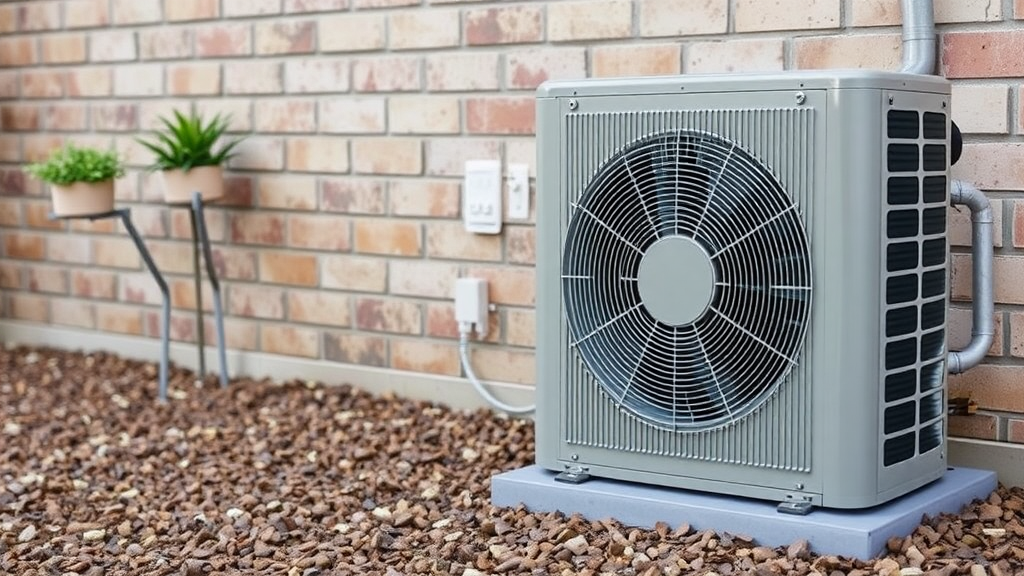
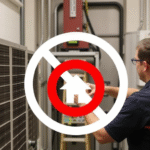
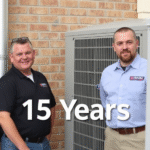
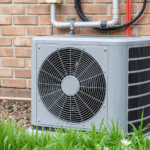
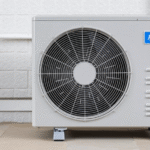
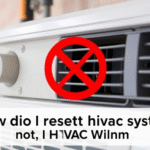
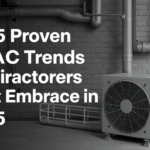
Leave a Reply